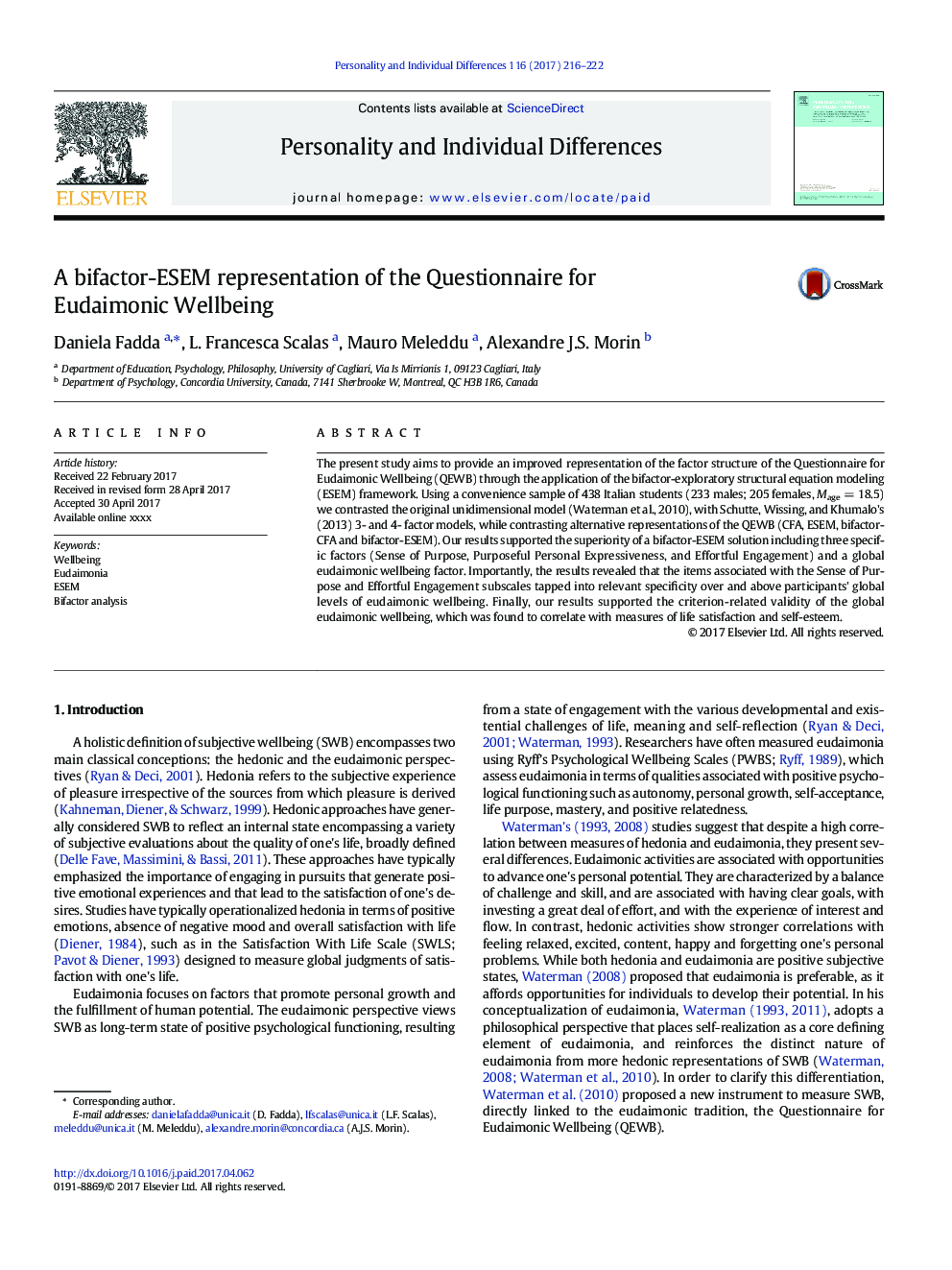| کد مقاله | کد نشریه | سال انتشار | مقاله انگلیسی | نسخه تمام متن |
|---|---|---|---|---|
| 5035606 | 1472002 | 2017 | 7 صفحه PDF | دانلود رایگان |
عنوان انگلیسی مقاله ISI
A bifactor-ESEM representation of the Questionnaire for Eudaimonic Wellbeing
دانلود مقاله + سفارش ترجمه
دانلود مقاله ISI انگلیسی
رایگان برای ایرانیان
کلمات کلیدی
موضوعات مرتبط
علوم زیستی و بیوفناوری
علم عصب شناسی
علوم اعصاب رفتاری
پیش نمایش صفحه اول مقاله

چکیده انگلیسی
The present study aims to provide an improved representation of the factor structure of the Questionnaire for Eudaimonic Wellbeing (QEWB) through the application of the bifactor-exploratory structural equation modeling (ESEM) framework. Using a convenience sample of 438 Italian students (233 males; 205 females, Mage = 18.5) we contrasted the original unidimensional model (Waterman et al., 2010), with Schutte, Wissing, and Khumalo's (2013) 3- and 4- factor models, while contrasting alternative representations of the QEWB (CFA, ESEM, bifactor-CFA and bifactor-ESEM). Our results supported the superiority of a bifactor-ESEM solution including three specific factors (Sense of Purpose, Purposeful Personal Expressiveness, and Effortful Engagement) and a global eudaimonic wellbeing factor. Importantly, the results revealed that the items associated with the Sense of Purpose and Effortful Engagement subscales tapped into relevant specificity over and above participants' global levels of eudaimonic wellbeing. Finally, our results supported the criterion-related validity of the global eudaimonic wellbeing, which was found to correlate with measures of life satisfaction and self-esteem.
ناشر
Database: Elsevier - ScienceDirect (ساینس دایرکت)
Journal: Personality and Individual Differences - Volume 116, 1 October 2017, Pages 216-222
Journal: Personality and Individual Differences - Volume 116, 1 October 2017, Pages 216-222
نویسندگان
Daniela Fadda, L. Francesca Scalas, Mauro Meleddu, Alexandre J.S. Morin,